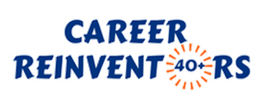To do otherwise I feel, would be negligent considering the working world of 2022 – and might put my clients’ long term career success and happiness at risk. Perhaps this shift of wellbeing up the coaching agenda, doesn’t feel such a surprising development considering how professional and managerial work has changed in the last ten years. Change is now the only constant due to new technologies, globalisation, political issues like Brexit and most recently Covid and the widespread adoption of working from home and hybrid working. Executives are continually dealing with high levels of volatility, uncertainty, complex and ambiguous (VUCA) aspects to their projects. As a result, senior executives may gradually slide into ways of working that are unhealthy, damaging to mental health and ultimately unsustainable. Executive Wellbeing is More than Avoiding Burnout
However, poor wellbeing manifests in many ways long before burnout. I’m talking about clients who frequently sleep badly or who have poor sleep habits, feel anxiety about their workload, or overwhelm and stress about the pressure their under. Others share feelings of isolation due to home-working or conflict in key relationships with bosses and subordinates. Under the wellbeing banner, I would also include feelings of lack of meaning and purpose. Isn’t executive wellbeing part of the ‘corporate wellbeing’ agenda? Something that employers are attending to? Well yes and no. Chartered Institute of Personnel and Development (CIPD)2 research shows that wellbeing is high on business agendas these days, but there is a significant ‘implementation gap’. It seems that while boards are wrestling with the corporate wellbeing issue and perhaps piloting programmes, staff wellbeing and executive wellbeing which is my particular focus, continue to deteriorate. Executive Wellbeing is a No-BrainerCoachees are realising the importance of managing their wellbeing and are prepared to invest to improve it. For many it’s a no-brainer. “If I stay fit and well then, I will have a long, lucrative and fulfilling career ahead of me. By contrast If I burnout, I may end up taking a lot of time out and my card might be marked”. (Yes, stigma around mental health still exists.) For me executive wellbeing coaching helps with so much more than ‘preventing burnout’. Like any executive coaching it is an opportunity for you to gain greater self-awareness, increase your self-knowledge, gain insights and replace outdated beliefs with beliefs that are more helpful to your life now. Executive wellbeing coaching can help you actually break patterns of self-destructive behaviour. E.g. You know you need to leave your desk, get out and take some fresh air, but still, you feel chained to your desk. Often, it’s not enough to cognitively be aware of the benefits of taking a walk, you may also need to understand and deal with the attitudes, beliefs and behaviours that might be keeping you at your desk; behaviours that perhaps might be driven by low self-esteem, perfectionism or fear of failure to mention but a few reasons. Some of this may be attributable to the fact that nowadays it can be hard for line managers to identify wellbeing issues. For instance, in matrix organisations a line manager may not have clear sight of their report’s total responsibilities as he or she may be collaborating on projects across the organisation and reporting to different leaders on some of them. A boss may only see a report on Zoom, and infrequently at that, making it harder to spot signs of poor wellbeing. Senior Executives Need to Take Responsibility for Their Wellbeing
This is where your executive coach can help. Executive coaches can also help you to take remedial action when your wellbeing might have gone awry. Executive Wellbeing Audits Can HelpExecutive coaching for peak wellbeing ideally explores what wellbeing looks like for the individual. This might include an audit of current issues, health status and self-care practices. Such an audit can identify latent mental health issues and pave the way to plan for better wellbeing and to access relevant resources.
Following the audit an executive wellbeing coach might help you to:-
¹ HSE Data Dec 2021. Work-Related Stress , Anxiety or Depression Statistics in Great Britain. 2 CIPD June 2016. Growing the Health and Wellbeing Agenda © 2022 Trudy Lloyd & Associates. All Rights Reserved.
0 Comments
clear what assertiveness is and isn’t. What’s more, they’re often not sure how to go about improving their skills in this area. Other professionals have told me that even though they may have attended group assertiveness training courses for managers in their organisation, they haven’t made the progress with their assertiveness skills that they might have hoped. Assertiveness Training Needs to be Personal.I feel and my experience has also shown that assertiveness training is most effective if it is personalised for the individual. This is because a manager or professional’s base level ability to assert themselves is influenced by many different factors. This means that it will not be enough for any one manager to simply learn the assertive behaviours and assertive language patterns that are taught on a typical group assertiveness training course for managers. you learn from your earlier experience about whether your needs were important or not? Were gender stereotypes around assertion at play for you? A key aspect of personalised assertiveness training is understanding how your history impacts your ability to assert yourself now. As a result of this socio-cultural history and also because of individual genetic make-up, when it comes to building assertiveness skills, people typically are starting from different places. What’s more two managers will likely respond differently to the different aspects of assertiveness training – each individual getting to grips with the various elements at a different pace and with a different level of ease. Benefits of Assertiveness TrainingIncreasing your assertiveness skills can transform your career progression as a professional. Assertive behaviours will help you build your visibility, influence and impact within your organisation. To whet your appetite, here are some assertiveness fundamentals – what assertiveness is and what it isn’t. Assertiveness Training for Managers 101What is Assertiveness?For example : Your boss asks you to complete some additional work by the end of the week. You are the best person to do the work, but your time is already fully committed to other work. An assertive response in this situation would be: - “I appreciate that you would like this work completed by the end of the month. However, I don’t see that I can fit it in with my workload as it is at present, so can we discuss it? What is Non-Assertion?
People who behave in a non-assertive way tend to believe that the other person’s needs and wants are more important than their own. Typically, people who behave in a non-assertive way are seeking to avoid conflict and please others. What is Aggressive Behaviour?
People who behave in aggressive ways tend to believe that their own needs want and opinions are more important than those of other people. People who behave aggressively are driven to win, if necessary at the expense of others. Next Steps with Assertiveness Training?Want to start to develop your assertiveness skills? First, observe and listen at work. How are your colleagues asserting themselves or not? How are they speaking? What words are they choosing? How are they treating other people? Are they respecting their own needs? Respecting other’s needs? What impact are they having? How about you? How well do you assert yourself at work?
You can learn more about personal assertiveness training here. I offer personalised online assertiveness training for professionals which delivers great results and the convenience of online meetings. If you have questions about personalised assertiveness training please contact me.
Nevertheless, I see how you come to the Reinventu™ career reinvention process weary but still expectant. You feel your career future is uncertain, but I sense your determination too; to reorientate if need be and open yourself up to change, and winning back some control. Skills Audit, Dreams and Reflection in Midlife Career ReinventionYou engage with the process, you reflect on your career and enthuse about your passions. You tell me you gain awareness and insight about yourself, who you are and what you want. You explore the wonderings and dreams that you’ve pushed away for half a lifetime, and suggest that it was high time that you seized the opportunity to reflect on what makes you tick, what fires you up at midlife and what you long for in your future career. You surprise yourself too : when you realise just how many hard and soft skills you’ve accumulated through your career: the amount of experience you have and the valuable qualities you’ve developed along the way. You’re blown away when you realise just how far you’ve come since you started out as a graduate trainee nearly twenty years ago.
in touch with something else, something greater than career progression and making money, it feels like it’s something about... ‘why I’m here’. And I see how you’re growing and I suggest that you are so much more than that senior manager in your industry, and you tell me that you get that, you really feel that now. Overcoming Barriers to Midlife Career Transitions
that make your heart sink and drain your energy? Could you live more flexibly with a portfolio of projects and roles, where each one sets your heart on fire and allows you to bring more of you into the world? We work through the doubts which you say feels like deep work that brings to awareness your established patterns of how you respond to challenges and risk, and you realise now that there may be more resourceful ways to respond to life. You say you are feeling less torn. We work on how to finance your transition plan, we continue, you notice you feel by turns waves of exhilaration and terror. The Spirit of Midlife Career Reinvention have walked this Reinventu™ path before, that you have become more fully alive. You have a burning sense of purpose and direction. You are realising that midlife career reinvention is not just about getting to a plan. It’s about the feeling, a feeling that says ‘yes’ to the universe… And you say it’s like nothing you’ve felt before. © Trudy Lloyd & Associates 2020. All Rights Reserved. If you'd like to have a chat about how the Reinventu™ process for midlife career reinvention please contact me
that during these last few months, you’d been coping by subconsciously believing things would return to normal… You’ve realised that’s not going to happen, it might never happen… You feel shaken, afraid, lost. Handling Unprecedented Career UncertaintyI hear how you’re grappling with this new uncertainty. The prospects for your industry are dire. Your bosses kept you and your team busy during lockdown with current projects. But with no future pipeline to speak of, your higher-ups have warned that posts will soon have to go. You’re barely sleeping with the anxiety about the mortgage and the bills, it’s unbelievable how much it costs to take care of a family. Thank God your wife is a teacher – at least her work looks secure at the moment… But it’s not just that. Despite this grim outlook for your work situation, part of you is recalcitrant. Lockdown and in particular working from home has changed you.
I tell you that despite your suspicions you’re not going mad. Let’s get some perspective, we’re living through a period of unprecedented change. Even during the Second World War, schools generally stayed open. Welcome to the VUCA world; volatile, uncertain, complex and ambiguous. We’ve had glimpses of it in the last twenty years due to the impact of new technologies and globalisation, but Covid-19 has taken VUCA to a whole new level. There’s volatility – infection rates are swinging up and down across the world. We have uncertainty – will there be a second lockdown? This is complex – it’s not just about your industry, it’s whether the eco-system of industries that feeds your industry survives. It’s ambiguous - different people interpret the data about the key measures deemed important differently. I wouldn’t be surprised if you feel in turmoil. Nostalgia for Career Stability“I feel in turmoil,” you say. “And there’s something else. I’m wondering if maybe I never had it so good as in the pre-Covid world! No it wasn’t perfect, but my work seemed stable, my life was on track, we went on holiday and away for the weekend. I worked out in the gym, had a pint with my mates… and I took it all pretty much for granted.” “So perhaps you’re feeling nostalgia for the good times?” I say, and you nod. And we agree that those times feel safe because we’ve lived through them and enjoyed them. And I hear the hopelessness in your voice when you say you feel defeated, but you’d like some answers if there are any. And I suggest that the old normal has gone and we have no clue about how the new normal of work and the economy will turn unfold. What’s more, spending time on predicting the future environment will likely be a fool’s errand. Career Hope Alongside Covid-19 And I ask you five questions and wait for your responses.
And I say that’s what I’m doing… and that’s all any of us can do right now. * This is a fictionalised coaching case based on recent experience. No content in this exchange is directly drawn from work with any particular individual or individuals. © 2020 Trudy Lloyd & Associates. All Rights Reserved.
collaborate, the soaring absence-rate and how you struggle to retain talent. You know what you’re doing isn’t working. I ask you what you’d like to do differently, and you fall silent. It’s a treadmill you say and you can’t change it. Your teams are exhausted, but you push them on because the CEO screams that the share price has tanked and the sales pipeline is weak. I ask again what you’d like to do differently, and frustrated, you say flippantly "give my teams a break! A rest". And I see the sadness in your eyes, and your exhaustion. “Maybe that’s what you need too...” We Need New Ways to LeadYou shake your head, even the HR director simply urged you to tighten up on performance management and employ disciplinary processes if need be. You sigh. “No one sees… no one sees…” “What don’t they see?” “That we’re destroying it all; our reputation, our customer relationships; with poor service and after-care, and our people… We drive them like machines!” You exhale, and you’re feeling the folly of it all. And then you smile ruefully, and together we’re contemplating those two opposing forces in life and business. The ‘force for change’, some call will; to set goals and targets, take action, persist, achieve and shape the competitive environment. And opposing it the ‘force for acceptance’, some call love; to empathise with people and care for them, bring them together and to accept current reality in all its complexity. We sit silently, feeling the tension between those forces and the awesome task to harmonise them and make business sustainable. You shake your head, and say you don’t know where to start. Leadership Requires Your Take RisksAnd yet we make a plan, just baby steps, to begin to shift the balance in your division between achieving business targets and nurturing people and relationships. And when you return you say it hasn’t been easy, but you’re now acknowledging what people have done instead of simply focusing on what’s next. You’re listening actively and engaging with your colleagues concerns rather than downplaying them. You’ve even championed people getting away from their desks at lunchtime! But there’s pushback. Your higher–ups claim you’re losing your grip. They’re bringing forward the deadline for your division’s business plan so as to have it completed by the time the top team visit. You sigh, everyone will have to work late nights to achieve that! You shrug and I feel how it hurts you to consider reneging on the ‘better way’ you’ve promised your teams. And then I see your nascent leader emerging, and your passion, to make your division a place where you deliver results AND care for your people. Leaders Need to Speak Up and Speak Out
We imagine how you might inspire them to consider change,and develop your negotiation strategy to get the deadline pushed back, including your red lines. We also work with what holds you back. And as you leave, you smile and say you’ll give it your best shot, but the important thing was deciding. “Deciding?” “To listen to the voice inside, and to speak up and; change or no change, choosing to speak out. And my heart sings at the leader you’re becoming. © 2019 Trudy Lloyd & Associates. All Rights Reserved.
And if career change is on your mind – won’t a little brainstorming suffice? I agree, online research can help you manage your career, change jobs, prepare for job interviews and more. Executive Career Coaching is Personalised HelpHowever, perhaps you want to find a stimulating and meaningful career path where you can grow your skills over time. Or you’d like to redesign your career so that your work remains meaningful even as you grow as a person through life. Perhaps you want to stay relevant in a fast-changing world, or maximise the financial return on your skill-set and experience. HOW you might achieve these things is personal to you, and online research is unlikely to give you information personalised enough to help you and your specific situation. That’s where the help of an executive career coach or career counsellor can transform the way you manage your career, and catapult you to higher levels of career fulfilment and career happiness. 3 Key Reasons to Invest in an Executive Career Coach1. To Help YOU Get a Meaningful and Rewarding Role Let’s face it recruiters’ objectives are often diametrically opposed to yours as a candidate. Success for the recruiter is achieving a low-risk hire for their client company; tried and tested – coming from the same role at a competitor is ideal; bam, recruiter’s commission assured. In short, recruiters can limit your options. If for example, you’re trying to move out of a declining sector into a new sector to improve your long term job security or if you’re looking to move into a new function – say from marketing to HR to respond to your changing interests and aspirations at midlife, recruiters’ narrowmindedness can have you crawling up the walls. Recruiters mostly want to put round pegs in round holes… and they may see you as a square peg. By contrast a good professional career coach sees not only your current skill-set and your career history to date, they also see you as a unique individual whose potential continues to emerge as you progress through your career. They see you as someone who has achieved a lot, but who has plenty more to learn and contribute in their career and in life. They see this even if right now, you can’t. Because of this an executive career coach can help you to raise your expectations for new roles. They can help you think strategically about how, in your current organisation, you might progress into the kind of role you desire. They can also help you think imaginatively about how you can transfer your skills and your changing interests into new roles or functions that may be very different from what you’ve done to date. If you feel jaded about your career, an executive career counsellor can challenge your limiting beliefs about what’s possible for you. 2.To Develop an Actionable and Inspiring Career PlanUltimately a top executive career coach can help you put together a highly personalised career development strategy and career plan or a career change plan. They can also help you identify any blocks to change or resistance you may have and help you to overcome them. What’s more they can help you develop creative strategies which will mean you can leapfrog the narrowminded recruiters and reach influencers and decision-makers who will be delighted with the skills and traits you have to offer. 3. To Save Time and Make More MoneyThey can also keep you accountable so that you continue to move forward and implement the plan. This will mean that you will get to your new role sooner. If it’s a promotion you’re looking for, an executive career coach can support you to make every step of the career move process more effective for you, so you get that bigger role quicker and bank that bigger pay cheque sooner. Whether it’s designing your job search strategy, writing an impactful and persuasive CV or improving your interview and networking skills, an executive career coach can keep you focused and on track. Finally, an executive career coach is probably more interested in YOUR career than your partner or your friends and family. In fact, they’re as interested and invested in your career as you are. A good executive career coach brings you the process, tools and knowledge to triumph with the project that is your career development. Your coach will help you think creatively so you can open up new career paths and career opportunities for yourself. Ultimately your executive career coach will work with you in an empathetic and supportive way and you’ll feel them championing you and your career! © 2019 Trudy Lloyd & Associates. All Rights Reserved.
I hear your disappointment. You trusted, you opened up to the coaching process and revealed your deepest thoughts and feelings, but you didn’t get what you'd hoped for. All Executive Coaching is NOT the SameI’m saddened because I know executive coaching can be so much better. Executive coaching can transform the way you see your world. It can energise you and free you; to raise your level of personal happiness and achievement. But this hasn’t happened for you. So here’s my thoughts. All executive coaching is NOT the same. Many models of coaching tell us that the coachee (individual being coached) holds sway over their whole personality. Such models assume you’re in control, or can ‘take control’ of your thoughts and feelings and leverage them at will. The assumption is that you choose your goals and then you can simply mobilise your necessary resources; brain, body and emotions to pursue and deliver those goals. 'Unconscious' Blocks to ChangeNow let me tell you about what some models¹ of human psychology and personality maintain – and it’s different. These models hypothesise that for most people such ‘freedom to act’ rarely exists. These psychological models suggest that your everyday interactions, behaviour and thinking are greatly influenced by your ‘unconscious’. This is 'psychic material' that you are scarcely or totally unaware of and which has accumulated throughout your lifetime - much of it from your childhood experience. The models suggest that it’s your ‘unconscious’ which gives rise to many of your mental barriers and emotional blocks to change. Many coaches focus almost exclusively on goal setting and action. Typically, coaches don’t concern themselves with helping you discover what YOUR entrenched mental barriers and emotional blocks to change are. Accountability is Not EnoughAs a result, no matter how much your coach ‘holds you to account’ and checks your progress, your blocks to change may triumph over the goals and plans you’ve created. You fail to achieve what you want and worse, may lose self-confidence. Sally’s* story may help illuminate. Sally was deeply unhappy about her boss's new 'ways of working'. He scheduled early morning meetings with her – despite her having previously agreed with her employer that she could flex her hours around the school run. She also felt that her boss valued her contributions and proposals less than those from other team members. Along with her executive coach Sally set goals to improve her relationship with her boss. She planned how to approach him, she got clear on what she needed to say to him and how. She gathered the evidence to support her case. Sally and her executive coach also worked on strategies and techniques to help her build her confidence. Unfortunately Sally neither followed through nor achieved her goals. By the time I met Sally she was disillusioned with executive coaching. However, she was brave enough to give coaching another chance. I worked with Sally using a psychodynamic coaching approach. Psychodynamic coaching has a broader focus that just goals and plans. Psychodynamic coaching takes into account the ‘unconscious material’ that can block our progress. During the coaching, we discovered Sally’s ‘pleaser’. This part of her personality was terrified of confrontation and always put the needs of others before her own. Sally’s ‘pleaser’ had developed when she was growing up, as a response to her unpredictable home life. When Sally had planned to talk to her boss, even though she had it mind to be reasonable and to put forward a well-researched proposal, the ‘pleaser’ stopped her. Her 'pleaser' was terrified of the situation turning nasty. Sally had not been aware of this ‘pleaser’ part of her personality before. In fact, Sally learned that much of the time she was at work she was strongly ‘identified’ with her. ‘Identified’ means relating to the world through a particular part of your personality. Doing so can feel familiar and safe. However, it is our ‘identifications’ that are often the cause of mental or emotional blocks to change. Psychodynamic Coaching Can Release Your Entrenched Mental Barriers and Emotional Blocks A psychodynamic model of coaching can help you discover where you may be overly reliant on a particular part of your personality. We don’t all have 'pleasers'! Some people have ‘judges’ or ‘drivers’ or other parts that are ‘ruling the roost’ and preventing them from achieving what they truly want. What’s more, psychodynamic coaching can also release you from living in this unbalanced way. By doing so you transform your perspective and your life. You gain greater self-awareness and open up more choices for yourself. You become better able to set the goals that truly matter to you and you can tap into new energy and motivation to make those goals happen. As I said, I’m sorry that you were disappointed with your coaching and I hope in time you’ll dare to trust executive coaching again… Perhaps with a psychodynamic approach? I’d love you to experience its transformational gift. * Name and some details have been changed to protect confidentiality
¹ Unfolding Self. The Practice of Psychosynthesis. Molly Young Brown (Allsworth Press 2004) © 2019 Trudy Lloyd & Associates. All Rights Reserved.  Joy? Never. Career change or career development is difficult and stressful. …And that’s on top of my heavy workload in my current role. I hear you. You don’t like your job, some days you’d like to pack it in. But you can’t allow yourself to think that… There’s the mortgage to pay, perhaps you’re supporting children at school or university. You tell yourself to ‘knuckle down’ and just get on with it. You feel that your job sounds good (on paper). You’ve got a great job title… Some people would kill for such a job… And yet this job is killing you; slowly, relentlessly, devouring your soul… I Hear How You’re Feeling ConflictedI hear you. I hear how you’re feeling conflicted. I hear how you’re exhausted by the demands of your job. The commutes feel harder than they did 20 years ago. Some days you’re not even sure if your organisation values your years of experience. All those bright young things seem to bounce round the office – fingers flying as they text, working at a frenzied pace. It’s a tantalising idea to change or develop your career at midlife. But surely, you feel, working on changing your career will just further overload you and your ‘to do’ list? Psst! I’ll let you into a secret. Midlife career change CAN be joyful. That was the exact word that Sarah* used to describe her midlife career change journey. Sarah had become increasingly unfulfilled with her senior role in business development. She’d led a team for the last few years and they’d delivered their targets. Now things were getting tougher. Their targets had been increased in a declining market, and though she’d fought hard, she’d not been given a penny of additional promotional spend. Sarah kept up her good work… developing new strategies and tactics… She continued to give her all. She was no shirker. Exhale Ahhhh, Relax and Play… But then Sarah took her summer holiday. She reclined on the golden sands of an Italian beach, and marveled at the azure sea. She felt herself exhale, ahhhh, relax, and let go of all thoughts of work. She laughed with her husband and had play fights with him in the sea. And she realised she’d forgotten how to play in the last few years. When she returned home, we met and she told me she was up for ‘playing’ with the idea of changing her career. She was up for dreaming of new possibilities of how she could work and live. I helped her to look at the world of work with ‘fresh eyes’, and notice just how much it has changed in the last fifteen years… And how there are now many new ways to work, earn a living and contribute. During our time together Sarah got excited and inspired… And now she’s arrived at a place where she’s talking to a charity about using her skills part time to support them in fundraising. She’s also planning to set up an interior design business with a friend. But most importantly, she tells me she’s rejuvenated and excited about the next 20 years of her working life. And now I see YOU. I see all you’ve achieved in the last 15 or 20 years; the way you’ve shown up consistently in your role; despite crises at home, bad weather and ‘off days’. I acknowledge how you’ve contributed hugely to leading and developing your team, how you’ve kept your skills up to date, and dealt with the office politics and conflict along the way. And in this summer holiday season, I wonder, could you make the space, to exhale - ahhhh, and relax, and in your own time to get playful again… About life and your career? * Name and some details have been changed to protect confidentiality © 2018 Trudy Lloyd & Associates. All Rights Reserved.  “I have to change my career,” Rachel insists, her eyes burning. “I know I’ll regret it if I don’t at least try and do something where I can be more active; like becoming a personal trainer. If this was the first time I’d coached Rachel it might make sense for us to start to explore exactly what type of ‘more active’ role might suit her. But it wasn’t the first time we’d talked, and in truth Rachel was already pretty clear that for her new career, she wanted to help people improve their health and fitness at midlife so they can have a long and happy retirement and old age. Indeed Rachel had already developed an excellent action plan for her new career. Unfortunately, she was making little progress implementing it. I asked Rachel a few more questions and things became clearer. The Problem of Being 'Identified' With Your Professional Role It seemed that Rachel was ‘identified’ so strongly with being an HR Director, and also with working in a large corporation, which was what she’d been doing for the last 18 years, that deep within her it felt impossible that she could be anything else. She’d had an ‘idea’ and made a plan to become a personal trainer. However, it was as if her internal ‘space’ was under monoculture to ‘HR Director vegetation’, and there was no ‘open ground’ within her, where she could plant and nurture the seedling for her new career. If we’ve been in a role for 10, 15 or more years it’s easy to become ‘identified’ with that role. When this happens, our role is not just what we ‘do’, but it can seem that we ARE that role… and it can hard to be anything else. Our tendency to identify with our professional role may be exacerbated if we have worked long hours at it, and also perhaps if we enjoy the professional status that role gives us. It’s easy to identify with any role. A ‘mother’ or ‘father’ who takes a career break can become identified with their caregiving role, and then find it hard to make the transition back to their career. Being identified with a role can also make us feel alive and focused, and that we have somewhere to channel our energy. However, identifying with a role, any of our roles, ultimately limits us. Because when we are identified with a role we are not in control; instead we are being driven by unconscious urges. This means we will likely overlook and be unable to tap into our other talents, interests and traits. This could mean that we miss out on career and life opportunities, miss out on what might make us happy at midlife. When we are heavily identified with a role and try to make career choices, there is a risk that we will make a sub-optimal choice. Dis-Identifying from Your Role Can Help Your Midlife Career ChangeEven if you don’t want to make a career change at midlife, you could benefit from ending a strong ‘identification’ with, or dis-identifying from your work role. Dis-identifying from your work role will give you a new perspective from which to make decisions. It can also release more energy as you reclaim parts of you that you might have pushed aside. Another risk of being overly identified with a job role is that, should you lose that role, perhaps through redundancy, retirement or ill health, then you could feel ‘quite lost’. It might even bring you to a crisis. “We are dominated by everything with which our 'self' is identified. We can dominate and control everything from which we dis-identify ourselves" Assagioli. Even if you’re working 60 hours a week at your job – you are much more than your role identity. Your role might require you to be for example organised and pro-active and ‘results driven’ among other things. But what about those other great talents you have; perhaps your creativity, your playful side, your athletic side. Is there space in your life for these aspects of you to 'show up'? By identifying so strongly as an HR Director, Rachel’s view of all the other parts of herself was blocked. How to Stop Being Identified with your Career Role. Ending your identification with a career role is a journey. It’s a journey where you discover your ’self’. The ‘self’ is a still, but dynamic place inside you, from which you can observe and direct the various aspects of your personality. Only when Rachel can stand back from her identity as an HR Director or dis-identify from it, will she feel less attached to the idea of herself in that role, and realise she has more 'ways of being’ in the world. To begin this process I asked Rachel to practise a couple of exercises. You can download the full instructions here. Here's a quick summary of the role dis-identification exercises.
It’s not just our work roles with which we can become overly identified. We can also become identified with our minds, our feelings and our bodies. By identifying with any of these aspects of ourselves we limit the choices we have in life. The process of dis-identifying from our roles, minds, feelings and bodies, is something that we can work on regularly. This will not only enable us to change our career when we feel the need to, but it can enable us to open up more options for our whole lives and for us to use more of our talents. Ultimately when we are in touch with our ‘self’, we are best placed to plan our career change or career development and most likely to succeed with it. © 2018 Trudy Lloyd & Associates All rights reserved.  You work on your skill set, right? Of course. It’s a must for you as a 21st century professional; to keep up with your field, with work technologies and relevant legislation. …So when did you last upgrade your skills in handling the pressure at work? Professionals often tell me that earlier in their career they might have experienced short bursts of high-intensity working, but then things always quietened down again. However, now they feel the pressure at work is relentless. Such pressure left unchecked can lead to workplace stress and wreak havoc on health; weakening the immune system, upsetting the digestion, disturbing sleep and more. Stress can damage relationships inside and outside of work, making people feel miserable and no longer able to enjoy life. How Can I Combat Workplace Stress?Clients struggling to cope with workplace stress, often ask me if they should leave their role or change career. I tell them : “You have three choices – and leaving to find pastures new is only one of them”. Here are the other two options.
Explore with your boss or colleagues options to reduce pressure and combat stress; these might include deferring deadlines, getting access to extra resource from inside or outside the organisation, doing some work from home and cutting back on the scope of a project. Brainstorm as many ideas as you can and try to make a case. And yes, I’m aware that speaking out at work about how you’re experiencing pressure and even stress may carry risks as to how you’re perceived, and may even affect your career progression. However, if your current job with less pressure would still suit you, then maybe it’s worth a try? How to Grow your Capability to Handle Workplace Pressure and Stress. Ultimately though, option two may be more fruitful: Change yourself. This means growing your capability to handle the pressure at work. I imagine you’re already familiar with what I call ‘Level One’ stress management techniques. They include ‘self-care basics’. However, it’s easy to break these positive habits when we’re under pressure.
Advanced Techniques to Handle Workplace Pressure and Stress. OK, but what if you’re still feeling the pressure? That’s where what I call ‘Level Two’ techniques come in. ‘Level Two’ techniques can bring about a step change in how you manage pressure and stress at work. E.g. They’ll enable you to ‘get away’ from work when you’re not there, so that you’re not recreating your 'stress response', and the attendant risks to your health, by thinking about work at home. You may need to work at mastering these techniques, but if you’ll do, you’ll reap huge quality of life rewards. Here's a brief introduction. Are You Too Attached to 'The Outcome'?
Are You 'Too Identified' With Your Role?
Handling pressure and avoiding stress is a key life skill in the 21st century. Perhaps it’s the MOST important professional skill - because it’s fundamental to your ability to keep on working and to enjoy your work! If you'd like to learn more about advanced techniques for handling pressure and stress you may want to consider personalised stress management coaching as an investment in your career and wellbeing for the long term. How have you learned to handle pressure? Share what's worked for you in the comments below! |
AuthorI believe that everyone should enjoy meaningful, satisfying and rewarding work - work that fires you up! I am fascinated by human potential and the life journeys people make to find work and careers where they can channel and develop their skills and talents in meaningful and satisfying ways. Archives
January 2022
Categories
All
|
Don't Settle For Your Default Future - CREATE the Future You Want!
Don't Settle for Your Default Future - Create the One You Want!
ExeCutive Coaching and Executive Career Coaching services |
Company |
|
























 RSS Feed
RSS Feed